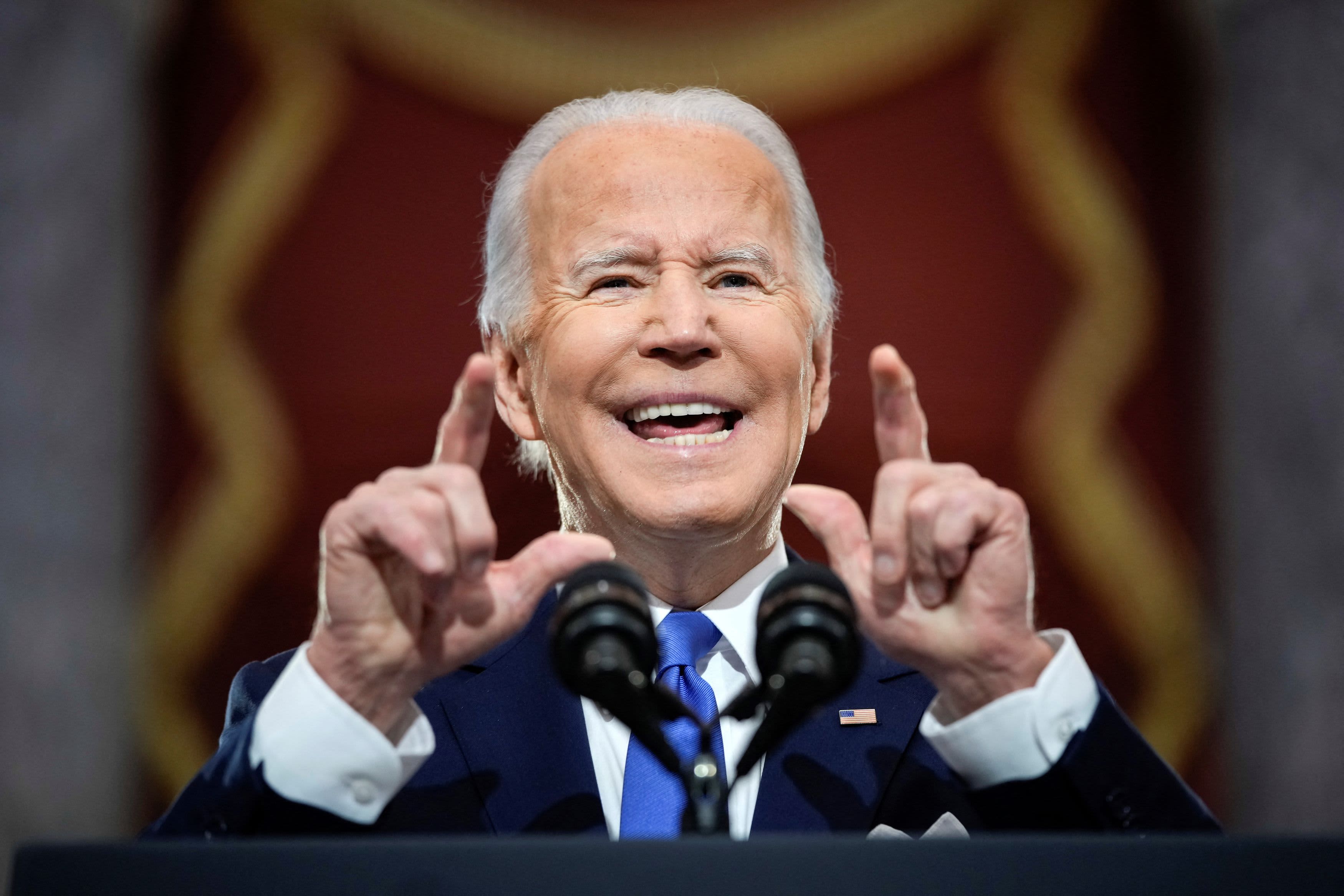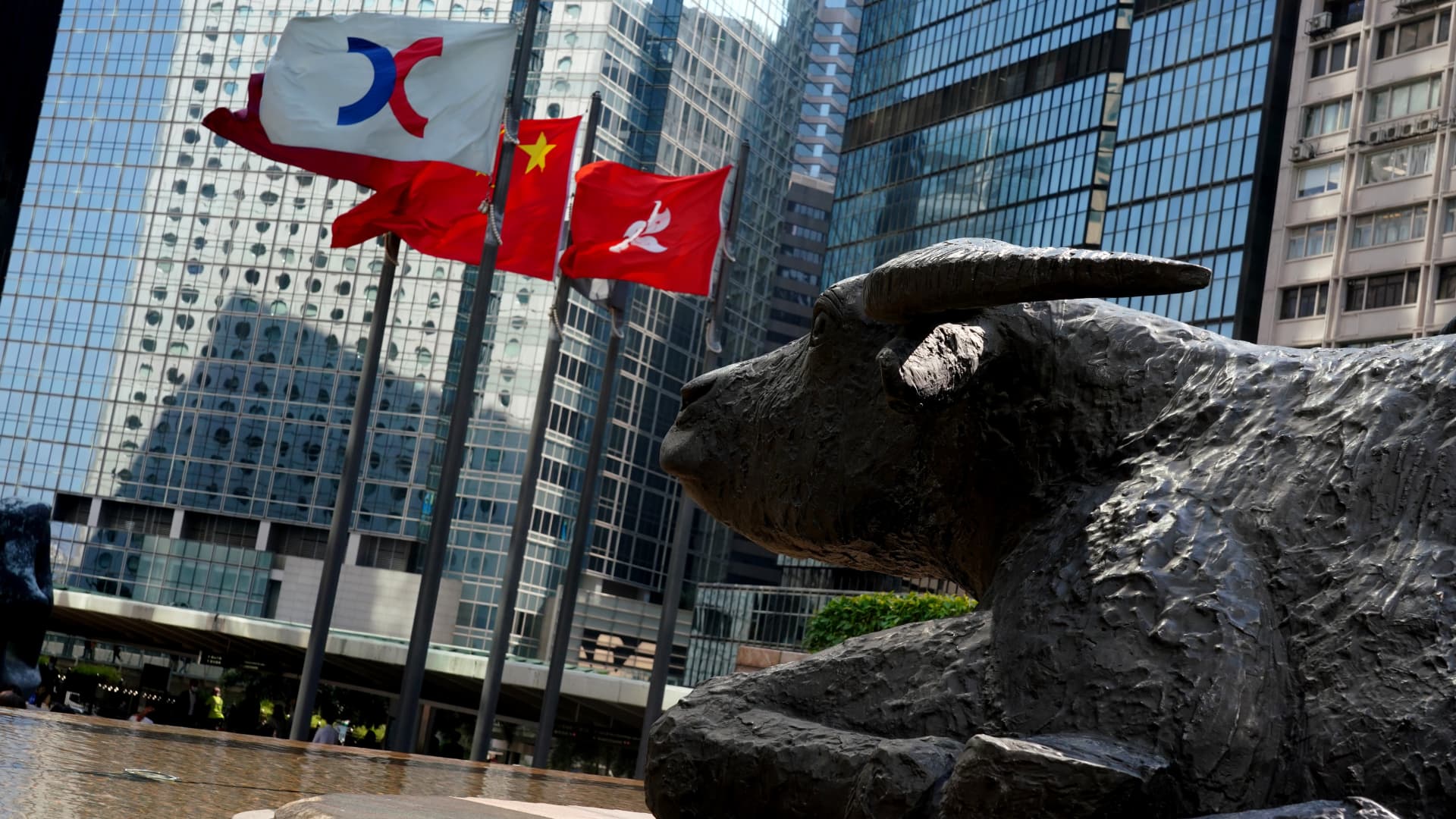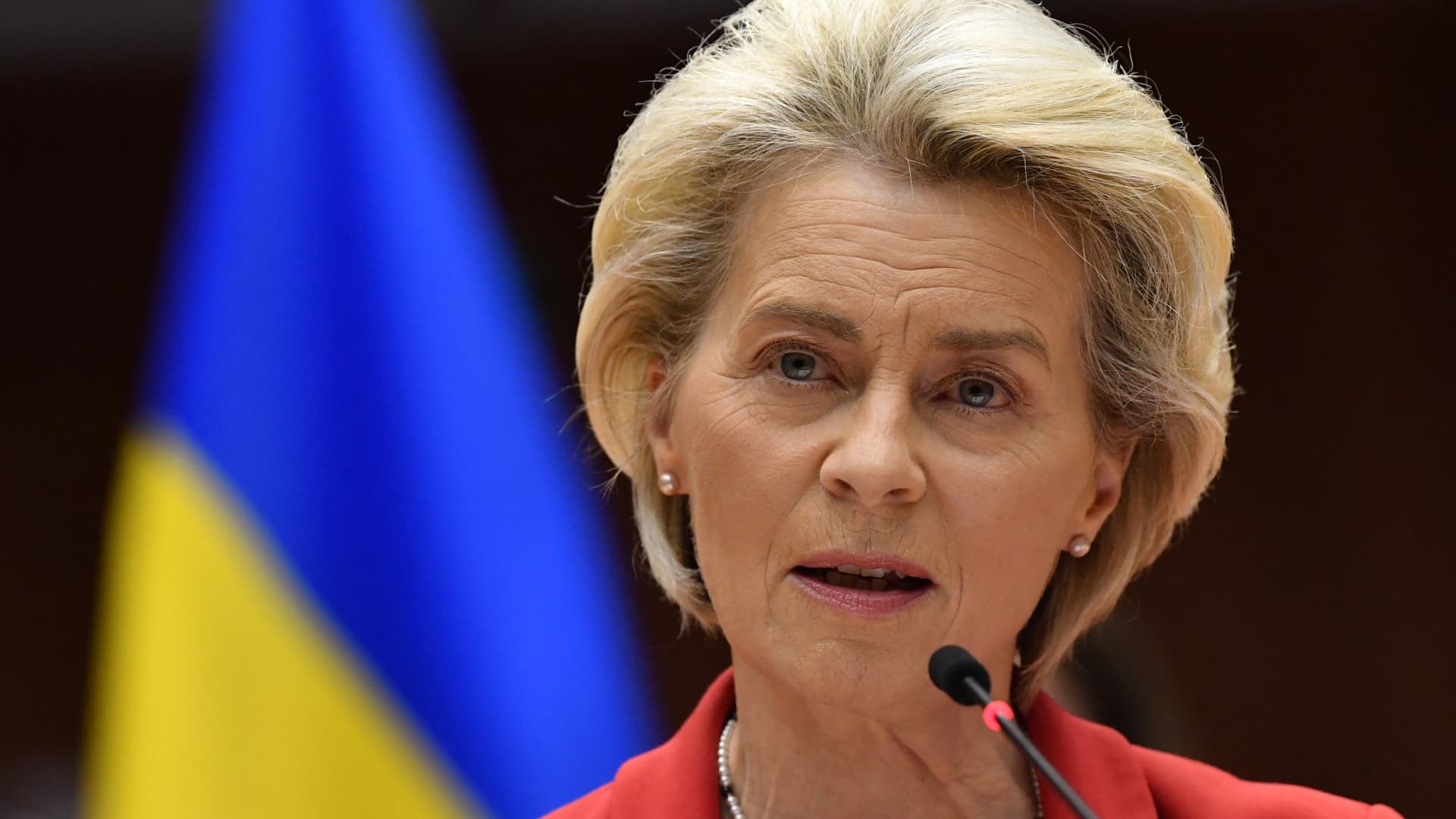China protests could usher in 'more authoritarian' Xi era, analyst says
The eruption over the weekend of mass protests in China could mark the start of a "more authoritarian" era in President Xi Jinping's premiership.
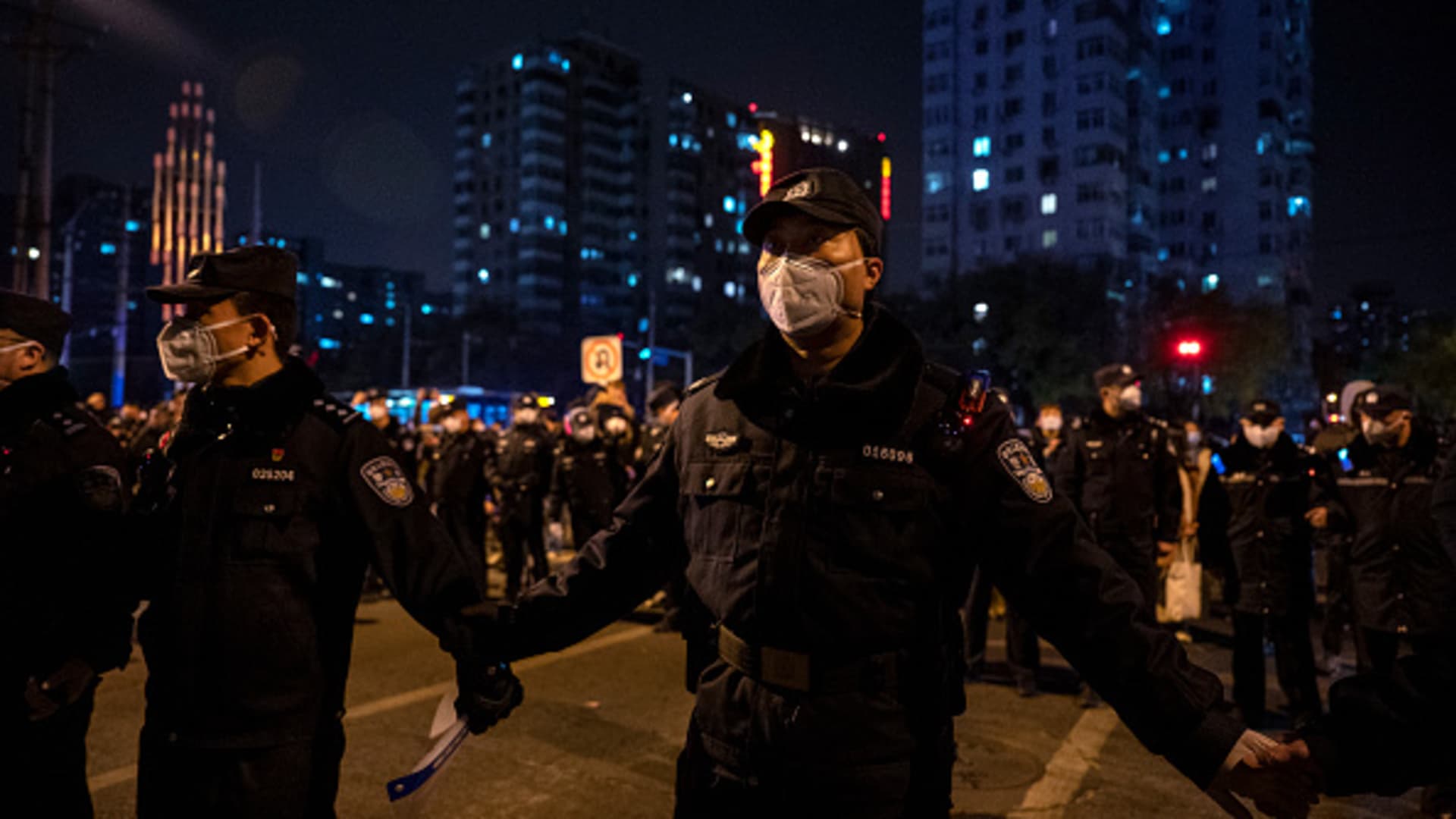
Police form a cordon during a protest against Chinas strict zero COVID measures on November 27, 2022 in Beijing, China.
Kevin Frayer | Getty Images News | Getty Images
The eruption over the weekend of protests in China could mark the start of a "more authoritarian" era in President Xi Jinping's rule, one analyst warned Monday, as Beijing appeared to reach a critical crossroads in its zero-Covid strategy.
Tens of thousands of people took to the streets of major cities on Saturday and Sunday to demonstrate against China's stringent Covid-19 measures, which have seen lockdowns, mass testing and widespread restrictions persist almost three years since the onset of the pandemic.
The protests present one of the most outward rejections of the Chinese Communist Party's (CCP) authority in decades, and a clear affront to Xi's signature "zero-Covid" policy, TS Lombard's chief China economist told CNBC Monday.
"They are widespread and, crucially, [they are] the first protests in a very long time that are going against a central government policy — and one that is very closely associated with Xi Jinping. So they are incredibly significant," Rory Green told CNBC's "Street Signs Europe."
Rising pressure on Xi
While Green said it was important not to "over extrapolate" the weekend's events, he added that it could pile the pressure on the Chinese leader to clamp down on dissent.
"It raises the pressure on Xi Jinping, and I think likely puts him towards a more authoritarian approach to governance in China," Green added.

The unrest — which included open calls in Shanghai for Xi to step down and the detention of foreign journalists — has been well-documented in the international press. But coverage within China has been somewhat limited due to the government's stringent censorship rules and control of the media.
As such, Xi's CCP could clamp down further on public protests, Green noted. That was the case during 2019's pro-democracy protests in Hong Kong, and 1989's Tiananmen Square protests on the Chinese mainland.
Zero-Covid strategy persists
The party is also likely to continue pursuing a hard line in its Covid strategy, as cases hit record highs even as citizens had anticipated an easing of measures.
"In the short term, the Covid policy will only be fine-tuned without moving the needle," Bruce Pang, chief economist and head of research for Greater China at JLL, said Monday.
"The focus of narratives is expected to be shifting back and forth between eliminating cases and making more precise measures," he added.
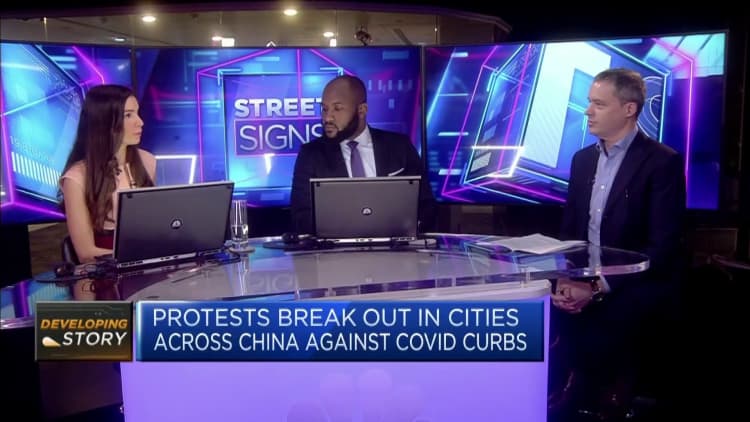
That will add downward pressure to the country's already struggling economy. As of the third quarter, China's growth for the year was just 3%, well below the official target of around 5.5%.
TS Lombard's Green said he thinks it is unlikely that real GDP growth will surpass 1% over the coming six months, as the county struggles to emerge from its "Covid coma."
"The upshot for the economy is bleak. We think China stays in this Covid coma until at least Q2 2023," he said.

 ShanonG
ShanonG 







